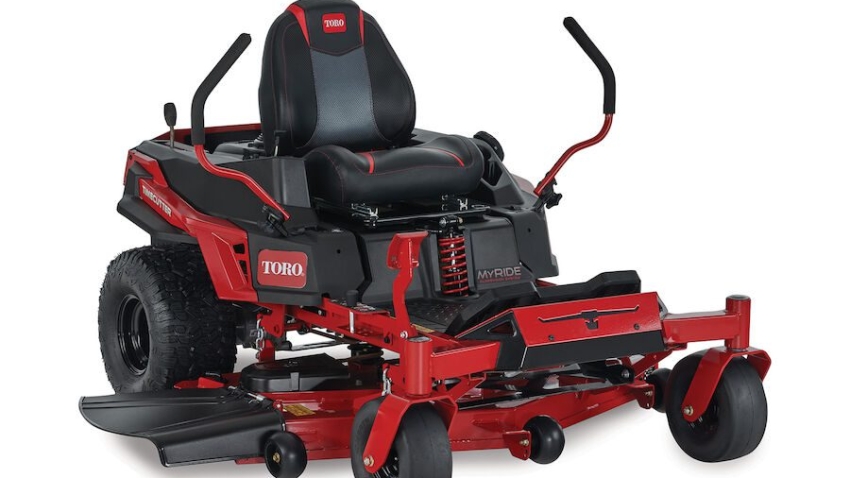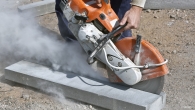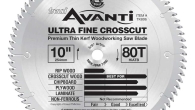
Lawnmower Troubles? Fix The ‘Won’t Stay Running’ Issue
Common Reasons Why Lawnmowers Fail to Stay Running
It’s frustrating when your lawnmower won’t stay on. Let’s explore some common culprits and what you can do.
Fuel Problems: Old or Dirty Gas
Are you using fresh gas? Old gas can cause starting trouble. Drain the tank and refill with new fuel.
Air Intake Issues: Dirty or Clogged Air Filters
Air filters trap dirt and debris. A clogged filter can choke the engine. Check and replace if dirty.
Carburetor Complications: Clogs and Contamination
The carburetor mixes air and fuel for combustion. A block can stall your mower. Clean or replace it as needed.
Choke Malfunctions: Managing the Fuel-to-Air Ratio
If the choke is on too long, it can flood the engine. Make sure it’s set right for the weather.
Spark Plug Failures: Misfiring and Replacement Needs
A dirty spark plug can’t fire properly. A quick clean or replacement could be the simple fix you need.
Step-by-Step Troubleshooting Tips
Now that we’ve covered the common causes, let’s dive into the step-by-step troubleshooting tips. These straightforward steps may help pin down the exact issue and guide you on how to fix it.
Checking and Replacing the Fuel
Suspect the fuel first if your lawnmower won’t stay running. Here’s what to do:
- Check the fuel age. If it’s more than a month old, it might be degraded.
- Drain old or dirty fuel. Always dispose of it safely, following local regulations.
- Fill the tank with fresh gas. Sometimes, that’s all it takes.
- Observe its functioning. If the problem persists, move on to the air filter.
Inspecting and Changing the Air Filter
A dirty air filter could be your culprit. To check and change it:
- Locate the air filter. It’s usually easy to find.
- Inspect for dirt and clogs. If it’s visibly dirty, it’s time for a change.
- Replace with a new filter. This could solve airflow issues instantly.
- Test run your mower. If it’s still stalling, the carburetor might be to blame.
Cleaning the Carburetor and Fuel Lines
A clogged carburetor can stop your mower in its tracks. To clean it:
- Remove the carburetor. Refer to your mower’s manual for guidance.
- Clean with carburetor-specific cleaner. Avoid water as it could cause rust.
- Check the fuel lines. If they’re clogged, clean them the same way.
- Reassemble and test. If the mower won’t run, the choke might need attention.
Adjusting or Repairing the Choke
If the choke is misbehaving, your engine may flood or not get enough fuel. To adjust or repair:
- Find the choke lever. It’s usually near the carburetor.
- Reset the choke. If your mower has a manual choke, ensure it’s in the correct position.
- Clean the choke mechanism. Sometimes it just needs a bit of cleaning.
- Seek professional help if it’s broken. The choke may need replacement.
Evaluating and Replacing the Spark Plug
A faulty spark plug can cause a myriad of issues. To evaluate and replace:
- Locate and remove the spark plug. Use a socket wrench that fits.
- Inspect for dirt and wear. If it looks dirty or worn, replace it.
- Install a new spark plug. Make sure it’s the correct type for your mower.
- Try starting the mower. A new spark plug could be the key to a smooth-running engine.
Follow these steps, and with a bit of luck and some elbow grease, you’ll have your lawnmower running smoothly again. If these tips don’t resolve your issue, it may be time to consider professional help.
Preventative Maintenance for Your Lawnmower
Ensuring your lawnmower runs smoothly isn’t just about addressing issues as they arise. Regular preventative maintenance is crucial. This approach not only helps in decreasing the frequency of malfunctions but also extends the lifespan of your lawnmower.
Regular Cleanups and Tune-Ups
Regular cleanups and tune-ups are essential to keep your lawnmower in top condition. After each use, remove any grass clippings, dirt, and debris from the mower. This prevents buildup that can clog the air filter or carburetor, leading to the issues discussed earlier. Additionally, schedule a full tune-up annually. This should include changing the oil, checking the spark plug, and replacing the air filter if needed. Remember, a well-maintained lawnmower is less likely to have problems and will run better for longer.
Understanding Maintenance Schedules
Every lawnmower comes with a manufacturer’s maintenance schedule. This schedule outlines when to perform certain maintenance tasks. Adhering to this schedule can prevent many common lawnmower issues. The key maintenance tasks typically include checking the oil level, cleaning or replacing the air filter, and sharpening the blades. It is advisable to familiarize yourself with your lawnmower’s specific maintenance schedule to ensure optimal performance. Keep track of maintenance activities, so you don’t forget when it’s time for a check-up. This proactive maintenance can save you from the frustration of a non-functional lawnmower.

When to Call a Professional Lawnmower Repair Specialist
Sometimes, despite your best efforts, the problem persists. It’s then that you may need to call a professional lawnmower repair specialist. But how do you know when it’s time to make that call? There are a few signs to watch out for.
Recognizing More Complex Issues
If after trying all troubleshooting steps your lawnmower still won’t stay running, it could indicate a more complex issue. Frequent stalls, unusual noises, and smoke are tell-tale signs. If you notice metal shavings in the oil, it can mean internal damage. Complex electrical problems or issues with the motor also require a specialist’s touch.
Recognize when the problem is beyond your expertise. If your lawnmower refuses to start or dies shortly after starting, despite fresh fuel and a clean air filter, it’s time to seek help. Sometimes, a professional can diagnose a problem that’s not immediately obvious to the untrained eye.
Finding Reliable Repair Services
Finding a trustworthy repair service is crucial. Start by asking friends and family for recommendations. Check online reviews and ratings, and don’t hesitate to ask repair services for references. Look for specialists with proper certification and a solid reputation.
Good repair services will offer a clear estimate of costs upfront. They should also provide a warranty on their work. Ask about the turnaround time to know how soon your lawnmower will be ready. Choose a service with good customer support to ensure they’ll be responsive to any follow-up needs.
Don’t wait until the start of mowing season to address issues. Lawnmower repair shops get busier as the weather warms, so consider taking care of repairs early. By recognizing when it’s time for professional help, you safeguard your lawnmower’s longevity and performance.

Alternatives to Repairing a Defunct Lawnmower
Sometimes repairing a lawnmower isn’t the most cost-effective or practical solution. If you find your lawnmower continuously failing despite multiple repairs, it might be time to consider alternatives that ensure a well-kept lawn without the hassle of frequent breakdowns.
Upgrades and Replacement Options
Upgrading or replacing your lawnmower might initially seem like a significant expense. However, it can be more economical in the long run. Modern lawnmowers come with enhanced features like better fuel efficiency, lower emissions, and advanced mulching capabilities. They are also often more durable and require less maintenance. When considering a replacement, look for models with good warranties and customer reviews.
- Electric Models: If you’re tired of dealing with gas, consider an electric lawnmower. They’re quieter and require less maintenance.
- Self-propelled Mowers: These mowers require less physical effort, making them ideal for larger lawns or for users who prefer ease of use.
- Robotic Lawn Mowers: These are perfect for those who want to minimize human effort. They can be programmed to mow at specific times and return to their charging station automatically.
Professional Landscaping Services as an Option
If you’re busy or lack the interest in maintaining your lawn, professional landscaping services are a fantastic alternative. These services can take care of all your lawn maintenance needs from mowing to fertilization. Here are some reasons to consider this option:
- Expertise: Professional landscapers have the knowledge to keep your lawn healthy throughout the year.
- Time-saving: Outsourcing this task frees up your time for other activities.
- Cost-effective: In the long run, using a service might cost less than continuous repairs and maintenance of a personal lawnmower.
Before deciding, weigh the initial costs against the potential long-term benefits and convenience of each option. Regardless of the choice, the primary goal is a lush, well-maintained lawn that enhances your home’s curb appeal.

DIY vs. Professional Repair: Weighing the Costs and Benefits
As you face lawnmower troubles, choosing a DIY fix or professional help is big. Here’s how to decide:
Assessing the Issue and Your Skills
First, think about the problem. Simple fixes like changing a spark plug are often DIY-able. But for bigger issues, you might need a pro. Know what you can do and what’s too much. Your skills matter a lot here.
Considering Time and Convenience
DIY repairs can save money but take your time. Professional help costs more but is quick. Ask yourself, do you have the time to fix your mower? If not, call a specialist.
Calculating the Financial Aspect
DIY means buying parts only. Hiring a pro adds labor costs. Compare the price of parts and your time versus a pro’s total fee. Sometimes, the difference is not that big. Go with what makes sense for your budget.
Looking at Long-Term Benefits
Sometimes, paying for professional repair means better long-term results. Pros might spot problems you’d miss. This can save you money and trouble down the line. Think about the future of your lawnmower too.
Deciding Based on Warranty and Service Guarantees
If your mower is under warranty, a pro must do the repairs. This ensures you don’t void the warranty. On the other hand, a good DIY job has no guarantee. Weigh these factors carefully.
Remember, whether you go DIY or call a specialist, the goal is to get mowing again smoothly. Pick what fits your situation best to avoid ‘won’t stay running’ blues.












Leave a Reply